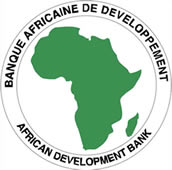The railway network also provides passenger services from the interior of Ghana to the main sea ports at Tema (near Accra) and Takoradi. There is a commuter railway line which links Accra and Tema. The main waterways include the Volta, Ankobra, and Tano Rivers, which provide 168 kilometres (104 miles) of year-round navigation, and Lake Volta, which provides 1,125 kilometres (699 miles) of arterial and feeder waterways. The two seaports of Ghana at Tema and Takoradi handle most of the country’s imports and exports.
The turnaround time for ships at Ghanaian ports is now one of the quickest in West Africa and the tonnage managed has also increased significantly.
There are six airports in Accra, Kumasi, Takoradi, Sunyani, Tamale, and Wa. The international airport, Kotoka is in Accra. A number of major international airlines that fly there regularly include British Airways, KLM, Iberia Airlines, TAP Portugal, Lufthansa, Alitalia, South African Airways, Air Namibia, Air Maroc, Egypt Air and Emirates Airlines. Four airlines, Starbow, Antrak, Africa World and City link, connect Accra to Tamale, Kumasi, Takoradi and Sunyani and the sub region in some cases. There are other sub regional airlines that also service the sub regions.
The provision of infrastructure and operations in all modes of transport in Ghana are dominated by the state. Except in the case of road transport, the public sector has been heavily involved in operations in all modes and has monopoly over rail and inland water transport. Road transport is very important to the Ghanaian economy. It is estimated that road transport accounts for 96% of passenger and freight traffic in Ghana and about 97% of passenger miles in the country.
Investors are therefore encouraged to invest more in the transport sector of the economy more especially in the railways and water transport in the country. Since inadequate attention is given to it by the government. And most promises made to improve on this aspect of transport system in the economy are not realized.
REFERENCE: Ghana Investment Promotion Center
https://www.kpmg.com/GH/en/Documents/Doing%20Business%20in%20Ghana%202015.pdf




































